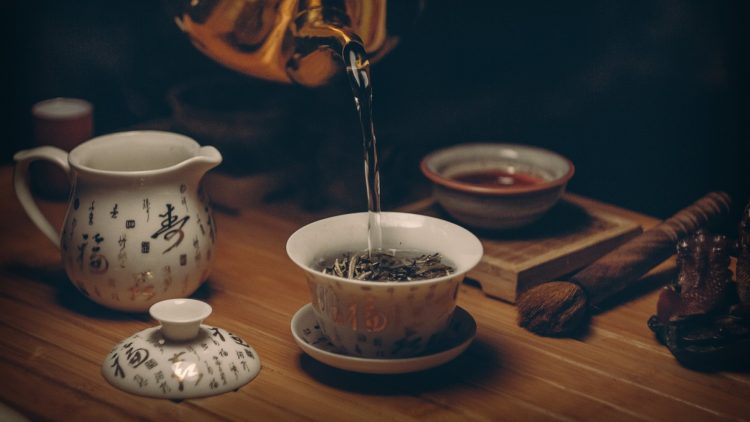Taiwan is often regarded as an island of serene beauty, where bustling cities coexist with tranquil nature. While Taiwan’s vibrant cities like Taipei are world-renowned for their modernity and high-tech developments, the island also boasts a rich cultural heritage rooted in tea traditions and spiritual practices. If you are looking to experience a side of Taiwan that is slower, peaceful, and deeply connected to its history, then exploring the tea houses and tranquil temples of this island should be on your travel list. In this guide, we will take you through Taiwan’s peaceful tea houses and tranquil temples, explaining what makes them so special, and how you can fully immerse yourself in the serenity of the island.
Taiwanese Tea Culture: Exploring the History and Significance of Tea Ceremonies in Taiwan
Taiwan’s tea culture is as old as the island itself, and it remains a cornerstone of the local way of life. Taiwanese tea is famous worldwide for its quality, particularly the oolong teas like Tieguanyin and Alishan. Tea in Taiwan is not just a beverage—it is an art form, a symbol of hospitality, and a reflection of the island’s spiritual values.
The History of Tea in Taiwan
Tea was first introduced to Taiwan in the 17th century by the Chinese, and it quickly became integrated into Taiwanese culture. The lush, fertile land and favorable climate made Taiwan an ideal place for tea cultivation, particularly in the central and northern regions of the island. As time passed, tea production in Taiwan evolved from simple, local farming to a sophisticated industry that produces some of the world’s finest teas.
Over the centuries, Taiwanese tea culture has grown into a refined tradition. It has become deeply intertwined with local customs, from the tea-drinking ceremonies that promote mindfulness to the meticulous processes of tea cultivation and preparation. Taiwanese tea houses—many of which date back to the Qing Dynasty—offer an authentic and immersive way to experience the island’s tea culture.
The Art of Taiwanese Tea Ceremonies
A visit to a traditional Taiwanese tea house provides a rare opportunity to participate in or observe a tea ceremony, an experience that is steeped in ritual and mindfulness. Unlike the fast-paced tea culture in the West, Taiwan’s tea ceremonies focus on slow, deliberate preparation. Tea masters carefully select the best tea leaves, heat the water to the perfect temperature, and brew the tea with precision. Every action, from the pouring of the water to the presentation of the tea, is done with great care and respect.
The tea ceremony is a form of meditation, where the guest is encouraged to relax and appreciate the subtle flavors and aromas of the tea. Whether it’s a small, intimate gathering or a more elaborate ceremony, the purpose is always to create an atmosphere of calm and peace. Tea houses in Taiwan provide a perfect environment to engage in this contemplative experience, whether you’re an experienced tea drinker or a first-time visitor.
Temples and Spirituality: Discover Taiwan’s Stunning Temples and Their Role in Local Culture
While tea is integral to the culture of Taiwan, so too is spirituality. Taiwan is home to a vast number of temples, each with its own unique significance and role in the community. These temples, many of which are dedicated to various deities, serve as places of worship, meditation, and spiritual rejuvenation. The architecture, traditions, and activities associated with these temples provide a unique glimpse into the heart of Taiwan’s spiritual life.
The Role of Temples in Taiwanese Life
Temples in Taiwan are not just religious sites—they are cultural hubs where locals gather for festivals, prayers, and community events. Taiwan is predominantly Buddhist and Taoist, with elements of Confucianism also playing a role in the island’s spiritual landscape. These diverse beliefs are reflected in the temples, which often blend Buddhist, Taoist, and folk traditions into a single structure.
For instance, the Longshan Temple in Taipei is one of the most iconic temples in Taiwan. It combines Buddhist, Taoist, and folk religious practices, and it’s a bustling center of spirituality where visitors can light incense, pray for good fortune, or simply observe the rituals of worship. The temple’s intricate design, adorned with colorful carvings and statues, offers a glimpse into Taiwan’s rich religious history and its emphasis on harmony between nature, humans, and the divine.
The Serenity of Taiwan’s Temples
What makes Taiwan’s temples particularly captivating is the atmosphere of tranquility and serenity they offer. The air is filled with the calming scent of incense, and the sound of chanting can often be heard as worshippers meditate or pray. These temples are often surrounded by lush gardens or serene landscapes, providing a peaceful refuge from the noise of the outside world.
Some temples, like the Fo Guang Shan Buddha Memorial Center in Kaohsiung, even feature expansive grounds and towering statues of the Buddha, creating a space for reflection and spiritual growth. In such spaces, visitors are encouraged to slow down, reflect, and immerse themselves in the peaceful surroundings. The combination of the temples’ spiritual significance and their tranquil environment makes them an ideal setting for those seeking inner peace.

How to Enjoy the Serenity: Tips for Immersing Yourself in Taiwan’s Peaceful Atmosphere
For those looking to experience the calm, reflective atmosphere of Taiwan’s tea houses and temples, here are some tips on how to make the most of your visit:
1. Take Your Time in Tea Houses
A visit to a Taiwanese tea house is more than just a chance to sip tea—it’s an opportunity to engage in a time-honored cultural experience. When visiting a tea house, take your time to observe the ceremony, ask questions about the different types of tea, and savor the subtle nuances of the tea. The pace is slow, so don’t rush. Engage your senses and allow yourself to be fully immersed in the experience.
2. Respect the Rituals at Temples
When visiting Taiwan’s temples, it’s important to show respect for the local customs. Dress modestly, be mindful of the sacredness of the space, and avoid loud talking or disruptive behavior. If you wish to participate in a prayer or light incense, take a moment to reflect before doing so. Many temples also offer guided tours or spiritual talks, so consider joining one of these to deepen your understanding of the temple’s history and significance.
3. Explore Off the Beaten Path
While temples like Longshan and tea houses in Taipei may be more popular, there are plenty of lesser-known temples and tea houses throughout Taiwan that offer a quieter, more intimate experience. For instance, the Jianqing Tea House in the mountains of Alishan or the Baishatun Mazu Temple in central Taiwan are hidden gems that provide peaceful environments without the crowds.
4. Combine Tea and Temple Visits
Many visitors find it beneficial to combine a visit to a tea house with a trip to a nearby temple. Taiwan’s temples are often located in scenic areas, offering lush landscapes and peaceful surroundings. After a visit to a temple, head to a nearby tea house for a relaxing cup of tea, allowing the tranquility of both places to wash over you.
5. Take a Mindful Approach
Taiwan’s tea houses and temples are perfect places to practice mindfulness and reflection. Whether you’re sipping tea or sitting in a temple garden, take the time to appreciate the beauty of the surroundings and the quiet moments. Leave behind the distractions of daily life and immerse yourself in the present moment.
Conclusion: A Journey of Peace and Reflection
Taiwan is a country that offers a unique blend of cultural traditions, spirituality, and natural beauty. By exploring its tranquil tea houses and serene temples, visitors can experience a side of the island that is deeply rooted in history and mindfulness. Whether you’re sipping on freshly brewed oolong tea or meditating in a centuries-old temple, the serenity of Taiwan offers a peaceful escape from the chaos of modern life. If you are looking to slow down, reflect, and reconnect with yourself, Taiwan’s tea houses and temples provide the perfect setting to do so.





















